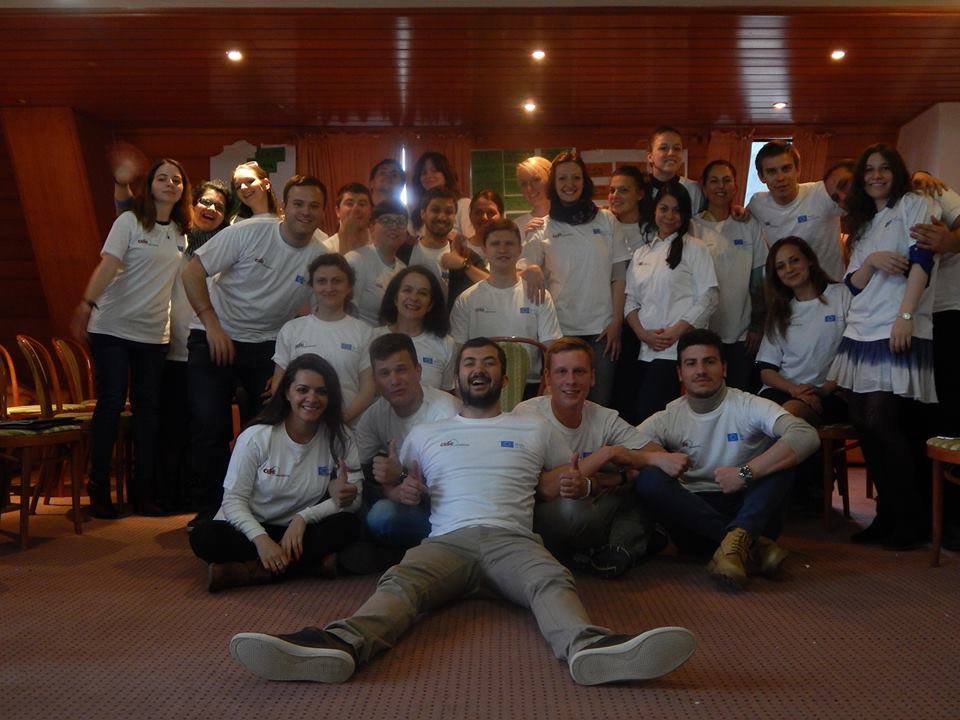The large number of unemployed youth in the Republic of Macedonia has raised the possibility of self-employment, ie young people to become creators of jobs, not only claimants. But how much the youth are aware of the benefits of self-employment and running their own business? And what the local authorities do to use this advantage for strengthening of their own economies?
CEFE Macedonia’s new project works to answer exactly to these questions and their deeper analysis to create a network of cooperation between youth and youth policy makers in the republic. The project was approved by the National Agency of Macedonia through Erasmus + KA3.
Within this project will address the key questions on this topic, by preparing a survey among young people in the republic and local authorities. The results of the survey will be published in a study which will be a guideline for local authorities to the needs of young people and how to use to strengthen economic and business environment in the country.
The main objective is to encourage dialogue between young people and local authorities, active involvement of young people in the labor market, entrepreneurial and business activities. To supplement youth policies at local and a regional level, and the development of local partnerships.
To meet these targets several activities are defined:
- Research and study the behavior and opinions of young people in partnership with local authorities
- Study the best practices for support and promotion of youth entrepreneurship
- Analysis and dissemination of research results
- A two-day discussion on “The role of local authorities in supporting youth entrepreneurship as a leading tool for improving the business environment, economic development and employment.”
It was made a report of the survey (target groups – young entrepreneurs and institutions), and the research was performed by Prof. Dr. Snezana Mojsovska Salamovska
‘Erasmus + project “Dialogue between young people and policy makers”, which is conducted by CEFE Macedonia survey was realized according to the following previously provided guidance and recommendations:
The survey should be focused on two target groups:
First group: Young people from 18-30 years. Among this group of respondents, the research should answer the following key questions:
- What is the habit among young people for starting of own business?
- Do they know the work of local governments and whether they would seek their help in developing their business?
- Do they have information on a particular measure or policy of the local government to promote entrepreneurship?
Second group: Local authorities and policy makers planned minimum of 60 respondents. Among this group of respondents, the research should answer the following key questions:
- Do they have developed targeted strategic documents, policies and measures to promote and support youth entrepreneurship?
- Do they have an established network of cooperation and development of local potential to stimulate the creation of businesses, exchanging information and scientific knowledge and innovation?
Under the agreement, data collection was carried out using the testing method previously designed questionnaires intended for testing electronically, but with the ability to be used also in conventional way for the realization of a personal interview with certain respondents that from objective reasons are not able to answer the questionnaire electronically. Thus, in the first phase of the research, they were initially designed structured questionnaires provided for both groups of respondents, as follows:
- Questionnaire for young entrepreneurs (Addition no. 1)
Questionnaire for institutions and policy makers (Addition no. 2)
The questionnaires were developed and implemented in electronic and printed form. Most respondents were interviewed electronically, through e-mail, by placing the questionnaire on social networks and so on. Data processing was performed by using cloud applications, and analysis and interpretation of results is presented in subsequent sections of this report, for each target group individually, and of course eventually presented comparative summary and conclusions.
Within the project “Dialogue between young people and policy-makers”, funded by the National Agency for European educational programs and mobility on 27-28.10.2016 in Hotel Epinal, Bitola was realised a two-day conference on “The Role local authorities in support of youth entrepreneurship as a tool for economic development and employment. ” Conclusions summarizes Prof. Dr. Monica Markovska
The main aim of the conference was to improve dialogue, communication and cooperation between local authorities and public sector and young people aimed at finding concrete and effective solutions support youth entrepreneurship. The conference took place within two days, with all-day activities.
It was structured in: opening the conference, presentation of the results of the survey, five panel – discussions, closing and evaluation of the conference. Each panel included speakers, panelists, representatives of public, private and non-profit sector where representatives were different experiences, opportunities, ways of employment, policies, measures and efforts relating to youth entrepreneurship.
Within each panel has developed a productive discussion which provided information and any documents informing young people increase young people’s interest in entrepreneurship, challenges, benefits and risks of the same. The panels (1,2,3) included guests – panelists, representatives of NGOs (CEFFE, Open the window, LEAD, Volvox) Technology Park – Tetovo University “Ss. Kliment Ohridski in Bitola (Faculty of Technical Sciences, Faculty of Information and Communication Technology), Business Academy Smilevski Employment Agency of the Republic Macedonia, Agency for promotion and development of agriculture. The panels (4,5) aimed at small group for drafting and presentation of concrete proposals for recommendations, policies and measures aimed at improving the dialogue between young people and the public sector.


